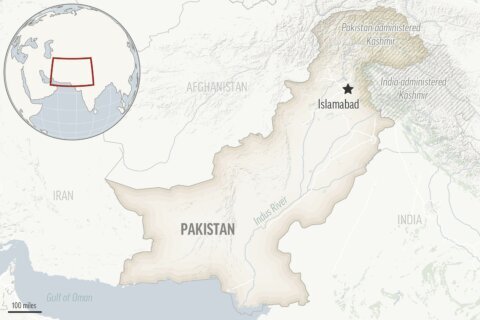Everyday there is another report on poverty eradication, climate action and making the world a better place. Written by the U.N., the World Bank or some such institution, they can be well researched, wellintentioned and, well, unlikely to trouble the private sector.
The latest addition, by the U.N. High-Level Panel on International Financial Accountability, Transparency and Integrity for Achieving the 2030 Agenda, is different.
The headline from the report: Stop the drain of trillions from tax abuse, corruption and money-laundering of dollars, and channel more of those resources towards sustainable development.
[MORE: The 10 Most Corrupt Countries, Ranked By Perception]
The figures are eye watering: an estimated $7 trillion of the world’s private wealth is funneled through tax haven countries, as much as 2.7% of the global gross domestic product is laundered by criminals. Bribery across the world is estimated at up to $2 trillion every year.
The panel says governments need more cooperation, and especially more coordination. The panel’s conclusion brings to the forefront the importance of improving global governance and that the United Nations is the best venue to handle most of this work in an inclusive manner.
Yet, this is not an agenda for governments only. The private sector can play an important role as a driver of change in reducing corruption. Positive leadership from the top is essential to set a culture of accountability and integrity in a corporate setting.
We need to instill an understanding that bribery is unacceptable and that paying corporate taxes is part of the social contract; and to respect the spirit not only the letter of the law in all matters.
Albert Einstein said, “in the midst of every crisis, lies great opportunity.” COVID-19, climate change and growing poverty are all crises that we see as an opportunity where deep reform is required.
Action is needed on a global scale, across developed and developing countries; across the private and public sector, to effectively prevent and combat the global scourge of corruption.
There is quite undeniably a business case for financial integrity. A level playing field contributes to a healthy private sector, and enhances it. Unfortunately, the private sector also plays a role as enabler of corruption, tax abuse and money laundering. We need a business community aligned with core principles of sustainability, transparency and humanity. It is time to accentuate the culture shift of accountability in business to include not only numbers and performance but also people and planet.
Proper incentives are needed to ensure business management is held accountable for abuses committed on their watch. Self-regulating mechanisms can form an important complement to a regulatory structure. For example, it can take the form of financial divestment from businesses not committed to financial integrity.
Last month, the Norges Bank Investment Management, which is the administrator for Norway’s oil revenue fund, sold its stake in seven companies that engaged in aggressive tax planning and had not been transparent in overall tax matters.
In fostering fairness around taxation, it is also imperative that we address emerging issues around taxation of digitalized economic activity. The advent of giant technology companies has profound implications for local employment and economic activity; yet in many countries those digital giants are profoundly under-contributing.
It is therefore urgent that international tax reform cover today’s gaps in digital taxation and provide a level playing field for all businesses.
We all need financial integrity for sustainable development. People rightly expect their political leaders to uphold high ethical standards. They should expect the same of business leaders. I hope the recommendations will trigger common action to the benefit of all.
More from U.S. News
The 10 Most Corrupt Countries in the World, Ranked By Perception
Survey Shows Countries Seen to Be Most Transparent
The 25 Best Countries in the World
The Global Private Sector Must Foster Financial Integrity originally appeared on usnews.com







